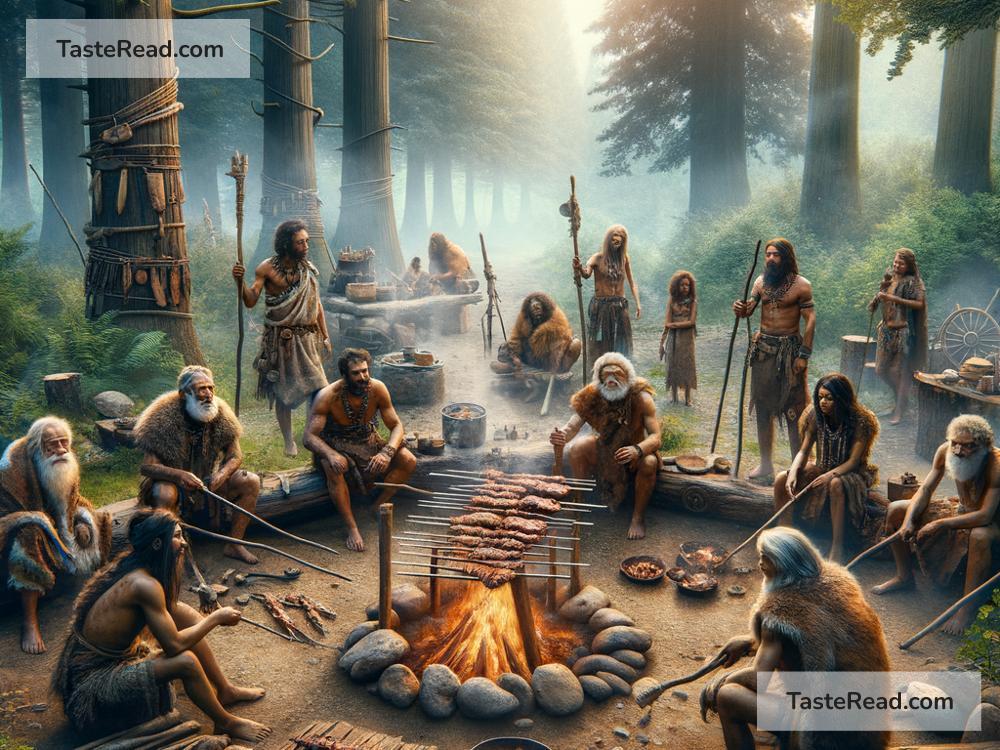The Origins of the First Barbecue in Ancient Tales
Barbecue is loved by people all over the world. From tender ribs and sizzling steaks to sweet and smoky sauces, barbecue is food that brings families and friends together. But have you ever wondered where barbecue began? Who first came up with the idea of cooking meat over fire, turning it into something so delicious? The story of the first barbecue dates back thousands of years, to a time when humans were just learning to use fire. Let’s explore the origins of barbecue, as told through ancient history and curious tales.
Humans and Fire: A Perfect Partnership
Long before people invented stoves or ovens, fire was one of humanity’s greatest discoveries. Scientists believe humans first learned how to control fire about 1.5 million years ago. At first, fire was used for warmth. It kept people safe from wild animals and allowed them to survive cold nights. But over time, our ancestors realized fire could also be used to cook food.
Early humans were hunters and gatherers. They ate a lot of plants, fruits, nuts, and raw meat. But raw meat could be tough, hard to chew, and even unhealthy. Cooking meat over fire made it easier to eat, tastier, and safer. Some scientists think the idea of cooking might have come accidentally, like when lightning struck a tree and started a fire, leaving some roasted animals nearby. The curious humans tasted the cooked meat and realized it was better than raw meat.
The Beginnings of Grilling
As humans began to use fire more often, barbecue-like cooking became common in ancient communities. Early barbecue didn’t look like the modern grills we use today. Instead, it was simple: people would roast meat on sticks or stones over an open flame. These early methods were basic, but they marked the beginning of a cooking style that would spread across the globe.
Some historians believe the first form of barbecue may have involved whole animals, like fish, birds, or even larger prey. Ancient hunters would place the meat directly onto a fire or bury it in hot ashes. Sometimes, they wrapped the meat in leaves to keep it moist while cooking. As tools and techniques advanced, humans started to build pits filled with wood or coal to cook meat slowly, giving it more flavor.
Barbecue in Ancient Cultures
Many ancient cultures developed their own styles of barbecue, influenced by the foods and resources available to them. Each culture added unique touches, spices, and traditions that shaped barbecue into what it is today.
-
The Indigenous Taino People
One of the most famous origins of barbecue comes from the Taino people of the Caribbean. The word “barbecue” itself is thought to have come from the Taino word barbacoa. They used wooden frames or grills to cook meat slowly over an open fire, giving it a smoky flavor. This method of cooking was shared with early European settlers, who carried the idea around the world. -
Ancient Egypt
In ancient Egypt, barbecue-like cooking was used during religious ceremonies and festivals. Egyptians roasted meat on large spits or skewers over open fires. Drawings found in tombs show people grilling fish and meat, suggesting that barbecue-style cooking was part of their everyday lives. -
China and Asia
In ancient China, people practiced roasting and grilling meat in a similar way. Evidence from archaeological sites shows that early Chinese civilizations cooked meat over open flames, often using simple techniques like skewering pieces. Over time, Chinese barbecue evolved to include flavorful marinades and sauces that are still popular today. -
Africa
In Africa, cooking meat over fire has been practiced for centuries and remains an essential part of many cultures. Early methods involved roasting whole animals over open flames or using pits dug in the ground. To this day, African barbecue techniques like braai in South Africa incorporate fire-cooked meat as a tradition of community and celebration.
How Barbecue Brings People Together
From its humble beginnings, barbecue became more than just a way of cooking—it became a social event. Early humans would gather around fires, sharing meals and telling stories. This tradition carried on as barbecue spread around the world. In many cultures, barbecue is not just about cooking—it’s about community, family, and fun.
Even though barbecue started as a survival skill, it grew into a way for people to build connections with others. Whether it’s a family cookout or a large festival, barbecue brings joy and brings people closer together.
The Modern Legacy of Ancient Barbecue
Today, barbecue styles vary from country to country. In the United States, you’ll find smoky Texas brisket and saucy Carolina pulled pork. In Brazil, there’s churrasco cooked over open flames. In Korea, there’s sweet and spicy marinated meats grilled tableside. Each style has its own rich history, but all of them owe their existence to the first ancient barbecuers.
Barbecue reminds us of our shared roots—how fire brought humans closer, and how food cooked with care creates lasting memories. The next time you bite into a juicy piece of barbecue, take a moment to appreciate the long journey its flavor has traveled through history. From the distant past to the modern grill in your backyard, the spirit of barbecue continues to unite people everywhere.
And who knows? Maybe our ancient ancestors gathered around their fires, sharing their own stories just like we do today. After all, barbecue isn’t just about meat—it’s about connection.


